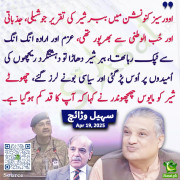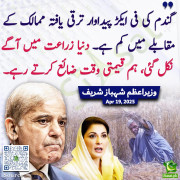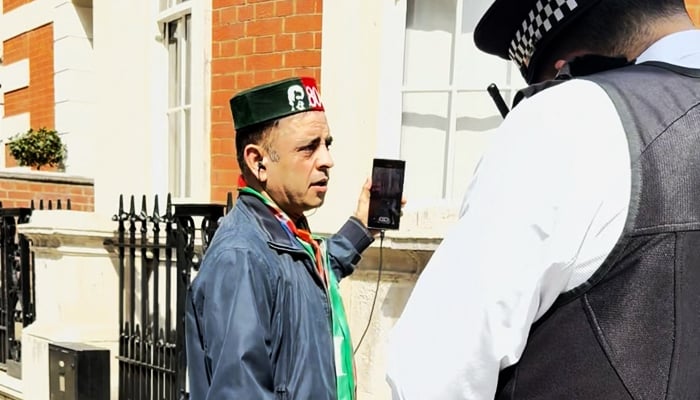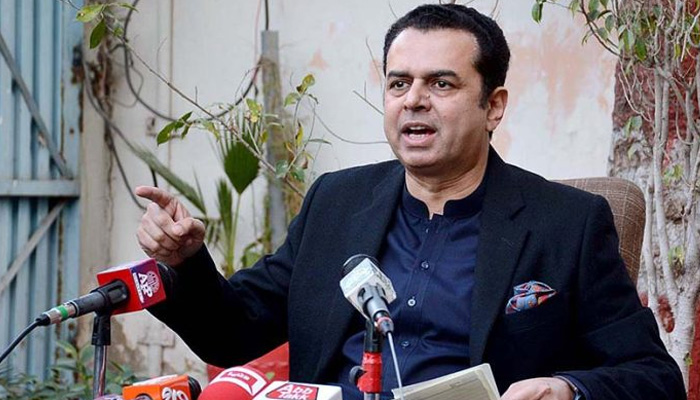عؔلی خان
MPA (400+ posts)
You’ve made some passionate arguments, but they collapse under basic scrutiny. Much of your position is built on linguistic manipulation, historical revisionism, and personal reinterpretation of core Islamic principles.
Let’s walk through this, point by point — not with emotionalism, but with evidence and clarity.
Yes, the Qur’an is complete — for its role as a divine book of guidance. But that does not mean it was meant to serve as a standalone manual of law and rituals.
Yes, the verse arises in a specific context — but the language is universal:
“Whatever the Messenger gives you, take it; and whatever he forbids you, abstain from it.”
(Qur’an 59:7)
This principle is timeless. Limiting commands only to the situation they were revealed in would dismantle nearly all Islamic rulings, including prayer, fasting, and inheritance. That’s not sound tafsir — that’s selective evasion.
The Prophet was the tafsir. He lived the Qur’an, as Aisha (RA) said:
“His character was the Qur’an.”
(Sahih Muslim)
His khutbahs, decisions, practices, and interactions are the practical tafsir of the Book. The Qur’an gave the principles, the Prophet gave them legs to walk on.
You ask,
Because not every verse requires explanation. The Qur’an is often self-evident in belief, but requires the Sunnah for law and practice.
This is a gross distortion of Islamic history and Hadith sciences.
And yet, the entire preservation of the Qur’an itself relies on the same chain-based historical transmission — memorization, documentation, and verification by those who came after. You accept that for the Qur’an, but reject it for Hadith — why the double standard?
Because the Prophet's primary role was oral transmission in a predominantly oral society.
Your claim that Hadith only began “a century later” is false. The recording and preserving of Hadith began in the first generation. Formal compilation became widespread later — just like codified Fiqh, Arabic grammar, or even the Qur’anic mushaf itself.
And yet Islamic law, theology, and even history are built on verified ahad reports — when the narrator is trustworthy, chain is connected, and content is sound.
If you reject Khabar Ahad in principle, then you reject how the Qur’an was preserved too, since not every verse comes with mass transmission of scribes' names and locations.
Be consistent: You can’t have a double standard for the Qur’an and Hadith.
This is the most repeated — and most misunderstood — Quranist argument.
In these verses, “hadith” means:
It does not refer to the Prophet’s own speech and practice, which the Qur’an commands us to follow repeatedly.
The Qur’an distinguishes between:
Now you’re openly rewriting the Arabic language.
So, the Sahaba were mushriks? The Tabi’un were mushriks? The preservers of the Qur’an were also preserving shirk?
Be careful.
---
You say Hadith corrupted Islam. But Hadith is:
Remove Hadith, and you have a book with no blueprint, a religion with no rituals, and a Prophet with no purpose.
Let’s walk through this, point by point — not with emotionalism, but with evidence and clarity.
“The Qur’an is complete — so no Hadith needed.”
Yes, the Qur’an is complete — for its role as a divine book of guidance. But that does not mean it was meant to serve as a standalone manual of law and rituals.
- “And We have sent down to you the Reminder so that you may explain to the people what was revealed to them.”
(Qur’an 16:44) - “He teaches them the Book and the Wisdom (Hikmah)...”
(Qur’an 2:129, 2:151) - “He does not speak from desire. It is but a revelation revealed.”
(Qur’an 53:3–4)
“59:7 is about war booty, not Hadith.”
Yes, the verse arises in a specific context — but the language is universal:
“Whatever the Messenger gives you, take it; and whatever he forbids you, abstain from it.”
(Qur’an 59:7)
This principle is timeless. Limiting commands only to the situation they were revealed in would dismantle nearly all Islamic rulings, including prayer, fasting, and inheritance. That’s not sound tafsir — that’s selective evasion.
“Where is the Prophet’s Tafsir?”
The Prophet was the tafsir. He lived the Qur’an, as Aisha (RA) said:
“His character was the Qur’an.”
(Sahih Muslim)
His khutbahs, decisions, practices, and interactions are the practical tafsir of the Book. The Qur’an gave the principles, the Prophet gave them legs to walk on.
You ask,
“Why don’t we find a Hadith for every verse?”
Because not every verse requires explanation. The Qur’an is often self-evident in belief, but requires the Sunnah for law and practice.
“Firabrī is not vouched for — so Bukhari collapses.”
This is a gross distortion of Islamic history and Hadith sciences.
- Firabrī was not majhūl. He had:
- Known teachers and students,
- Cross-verified narrations,
- Biographical mentions in authoritative books like:
- Tārīkh Baghdād (al-Khatīb)
- Tadhkirat al-Ḥuffāẓ (al-Dhahabī)
- Tahdhīb al-Tahdhīb (Ibn Hajar)
“But these scholars came centuries later!”
And yet, the entire preservation of the Qur’an itself relies on the same chain-based historical transmission — memorization, documentation, and verification by those who came after. You accept that for the Qur’an, but reject it for Hadith — why the double standard?
“Why didn’t the Prophet write Hadith himself?”
Because the Prophet's primary role was oral transmission in a predominantly oral society.
- He initially discouraged writing Hadith to prevent confusion with the Qur’an.
- He later allowed it when Qur’anic compilation stabilized.
- Companions did write Hadith:
- Abdullah ibn Amr had the Sahifah al-Sadiqah
- Ali ibn Abi Talib and others maintained their own records.
Your claim that Hadith only began “a century later” is false. The recording and preserving of Hadith began in the first generation. Formal compilation became widespread later — just like codified Fiqh, Arabic grammar, or even the Qur’anic mushaf itself.
“Most Hadith are Khabar Ahad — single chains”
And yet Islamic law, theology, and even history are built on verified ahad reports — when the narrator is trustworthy, chain is connected, and content is sound.
If you reject Khabar Ahad in principle, then you reject how the Qur’an was preserved too, since not every verse comes with mass transmission of scribes' names and locations.
Be consistent: You can’t have a double standard for the Qur’an and Hadith.
“The verses that say ‘no hadith after this’ (e.g., 77:50) mean we can't follow Hadith”
This is the most repeated — and most misunderstood — Quranist argument.
In these verses, “hadith” means:
- False legends (as in 31:6),
- Stories of prior nations (as in 12:111),
- Human conjecture and mockery (as in 45:6, 77:50)
It does not refer to the Prophet’s own speech and practice, which the Qur’an commands us to follow repeatedly.
The Qur’an distinguishes between:
- “Hadith” as vain speech
- And Hadith/Sunnah as the Prophet’s divinely guided instruction
“Salah doesn’t mean prayer, Saum isn’t fasting, Zakat isn’t charity”
Now you’re openly rewriting the Arabic language.
- Salah in every Qur’anic occurrence involves Qiyam, Ruku, Sujood — not “general servitude.”
- Saum is defined explicitly in 2:183–187 — it means abstaining from eating, drinking, and intercourse from dawn till sunset.
- Zakat is monetary purification — given annually, not “general kindness.”
“Following Hadith is shirk”
So, the Sahaba were mushriks? The Tabi’un were mushriks? The preservers of the Qur’an were also preserving shirk?
Be careful.
- “O you who believe, obey Allah and obey the Messenger.”
(Qur’an 4:59) - “Say: If you love Allah, follow me, and Allah will love you.”
(Qur’an 3:31) - “Whatever the Messenger gives you, take it.”
(Qur’an 59:7)
---
You say Hadith corrupted Islam. But Hadith is:
- How the Qur’an was practiced
- How prayer was taught
- How fasting, zakat, and Hajj were performed
- How every ruling in Islamic jurisprudence was derived
Remove Hadith, and you have a book with no blueprint, a religion with no rituals, and a Prophet with no purpose.
You don’t want the Prophet's Islam.
You want your version of it — and that’s not submission. That’s ego.
You want your version of it — and that’s not submission. That’s ego.


































